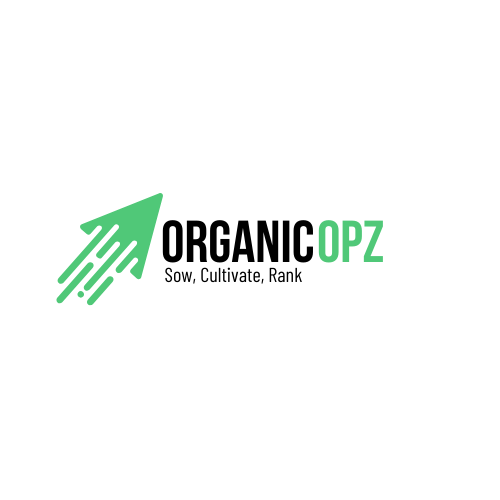Organic Marketing Strategy Breakdown: Step-by-Step Guide
 OrganicOpz
OrganicOpzOrganic marketing is essential for any business aiming for long-term growth and sustainability. By leveraging natural search engine optimization (SEO) techniques, content marketing, social media engagement, and community building, you can drive traffic to your site without relying on paid advertisements. This step-by-step guide will walk you through developing an effective organic marketing strategy that can elevate your brand's online presence.
Understanding Organic Marketing
Organic marketing refers to using non-paid methods to attract and engage potential customers. Unlike paid marketing, which involves purchasing ads to gain visibility, organic marketing focuses on creating valuable content that naturally draws visitors to your site. This strategy is essential for building trust and credibility with your audience.
Step 1: Identify Your Target Audience
Before you begin creating content, it's crucial to understand who your target audience is. Conduct market research to identify your ideal customer’s demographics, interests, and online behaviors. Use tools like Google Analytics, social media insights, and customer surveys to gather this data.
Step 2: Perform Keyword Research
Keyword research is the foundation of any successful organic marketing strategy. Identify relevant keywords and keyphrases your target audience uses to search for your products or services. Tools like Google Keyword Planner, SEMrush, and Ahrefs can help you find high-volume, low-competition keywords. Remember to incorporate these keywords naturally into your content to maintain readability and avoid keyword stuffing.
Step 3: Create High-Quality Content
Creating high-quality, engaging content is vital for attracting and retaining visitors. Your content should address your audience's needs, answer their questions, and provide value. Use a mix of blog posts, articles, videos, infographics, and podcasts to keep your audience engaged. Ensure your content is original, fresh, and stands out from existing material to capture your audience's attention.
Step 4: Optimize On-Page SEO
On-page SEO involves optimizing individual web pages to rank higher and earn more relevant traffic. Use your focus keyphrase in the title, headings, URL, and meta descriptions. Keep your paragraphs under 150 words and use shorter sentences to enhance readability. Incorporate subheadings to break up the text and make it easier for readers to scan. Use transition words to improve the flow of your content and limit the use of passive voice to make your writing more direct and engaging.
Step 5: Leverage Social Media
Social media platforms are powerful tools for promoting your content and engaging with your audience. Share your content on platforms like Facebook, Twitter, LinkedIn, and Instagram to increase visibility. Engage with your followers by responding to comments, participating in discussions, and sharing relevant industry news. Building a strong social media presence can help drive traffic to your site and improve your search engine rankings.
Step 6: Build Backlinks
Backlinks, or inbound links from other websites to your site, are crucial for improving your SEO. Reach out to industry influencers, bloggers, and websites to collaborate on content or request backlinks. Creating high-quality, shareable content can also naturally attract backlinks. Use tools like Moz and Ahrefs to monitor your backlinks and ensure they come from reputable sources.
Step 7: Analyze and Adjust
Regularly analyze your organic marketing efforts to identify what’s working and what needs improvement. Use tools like Google Analytics and SEMrush to track your website traffic, keyword rankings, and user engagement. Adjust your strategy based on this data to continually improve your results. Regularly updating your content can also keep it relevant and improve its performance in search rankings.
Conclusion
Developing an effective organic marketing strategy takes time and effort, but the long-term benefits are worth it. By understanding your target audience, performing keyword research, creating high-quality content, optimizing on-page SEO, leveraging social media, building backlinks, and analyzing your efforts, you can drive sustainable traffic to your site and grow your brand's online presence.
Ready to take your organic marketing strategy to the next level? Start by identifying your target audience and performing keyword research. Need help? Contact us today for a consultation and let us help you grow your brand organically!
Subscribe to my newsletter
Read articles from OrganicOpz directly inside your inbox. Subscribe to the newsletter, and don't miss out.
Written by

OrganicOpz
OrganicOpz
Welcome to OrganicOpz, your partner in cultivating organic growth and optimizing your online presence. We specialize in personalized SEO strategies designed to help you rank higher, attract more organic traffic, and achieve long-term success in the digital landscape.